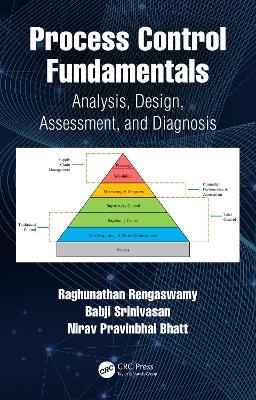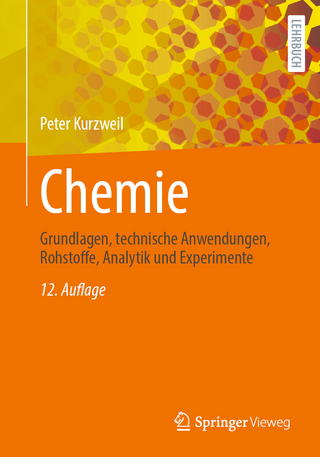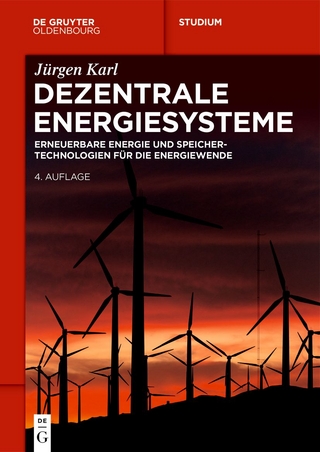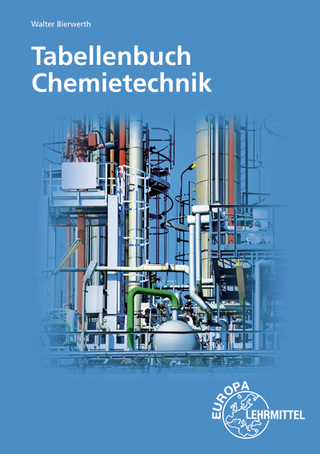
Process Control Fundamentals
CRC Press (Verlag)
978-0-367-43342-0 (ISBN)
The field of process control has evolved gradually over the years, with emphasis on key aspects including designing and tuning of controllers. This textbook covers fundamental concepts of basic and multivariable process control, and important monitoring and diagnosis techniques.
It discusses topics including state-space models, Laplace transform to convert state-space models to transfer function models, linearity and linearization, inversion formulae, conversion of output to time domain, stability analysis through partial fraction expansion, and stability analysis using Routh table and Nyquits plots. The text also covers basics of relative gain array, multivariable controller design and model predictive control. The text comprehensively covers minimum variable controller (MVC) and minimum variance benchmark with the help of solved examples for better understanding. Fundamentals of diagnosis of control loop problems are also explained and explanations are bolstered through solved examples. Pedagogical features including solved problems and unsolved exercises are interspersed throughout the text for better understanding.
The textbook is primarily written for senior undergraduate and graduate students in the field of chemical engineering and biochemical engineering for a course on process control.
The textbook will be accompanied by teaching resource such a collection of slides for the course material and a includsolution manual for the instructors.
Raghunathan Rengaswamy is an institute chair professor at the department of chemical engineering and a core member of the recently established Robert Bosch Center for Data Science and AI (RBC-DSAI) at the Indian Institute of Technology Madras. Prior to this, he was professor, chemical engineering and co-director of the process control and optimization Consortium (PCOC) at Texas Tech University, USA, associate and full professor at Clarkson University, New York and assistant professor at Indian Institute of Technology Bombay, India. He has also been a visiting professor at Purdue University, USA, University of Delaware, USA and University of Alberta, Canada. His research interests include data analytics, fault detection, diagnosis (FDD), development of sensor placement (SP) algorithms for FDD, and controller performance assessment (CPA). He has more than two decades of teaching and research experience and has published more than 100 research papers in journals of national and international repute. Babji Srinivasan is currently working as an assistant professor, department of chemical engineering, Indian Institute of Technology Gandhinagar. His current research interests include design, control and monitoring of complex systems with human-in-the-loop, design for enhancing situation awareness in humans, modeling, control, and optimization of wastewater treatment systems. He worked as a postdoctoral research scientist at Columbia University in New York. He has taught courses including control theory, probability, and random process, modern control theory and design of experiments at undergraduate and graduate level. Nirav P Bhatt is presently working as an assistant professor, department of biotechnology, Indian Institute of Technology Madras, India. His current research interests include modeling and identification of complex biological and human-made networks, particularly, smart infrastructure, reinforcement, and machine learning approaches. He has taught courses including bioprocess control, process control, optimal control, modeling and simulation methods to bioprocess, chemical and electrical engineers at undergraduate and graduate level. He has published several journal and conference papers in areas of control and learning techniques and its applications in process and engineering industries.
List of Figures. List of Tables. 1. Introduction. 2. Models for Control. 3. Process Identification. 4. Analysis of Transfer Function models. 5. Controllers and analysis of closed loop transfer functions. 6. Controller tuning. 7. Multi-loop and multivariable control. 8. Model Predictive Control. 9. Fundamentals of controller performance assessment. 10. Fundamentals of controller performance diagnosis. 11. Case Studies. Bibliography.
| Erscheinungsdatum | 21.05.2020 |
|---|---|
| Zusatzinfo | 21 Tables, black and white; 236 Illustrations, black and white |
| Verlagsort | London |
| Sprache | englisch |
| Maße | 156 x 234 mm |
| Gewicht | 635 g |
| Themenwelt | Naturwissenschaften ► Chemie ► Technische Chemie |
| Technik ► Umwelttechnik / Biotechnologie | |
| ISBN-10 | 0-367-43342-7 / 0367433427 |
| ISBN-13 | 978-0-367-43342-0 / 9780367433420 |
| Zustand | Neuware |
| Haben Sie eine Frage zum Produkt? |
aus dem Bereich


